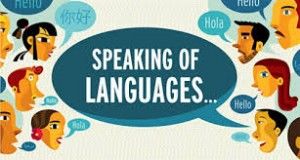Endangered Words, Endangered Worlds
 Of the 7,000 languages spoken around the world, nearly 500 are classified as endangered. While 133 languages are spoken by just 10 people or less, there are two known speakers of Lipan Apache in the US, and a single Bikya speaker in the Cameroon according to Ethnologue, a language website.
Of the 7,000 languages spoken around the world, nearly 500 are classified as endangered. While 133 languages are spoken by just 10 people or less, there are two known speakers of Lipan Apache in the US, and a single Bikya speaker in the Cameroon according to Ethnologue, a language website.
On the other hand, 6% of the world’s languages are spoken by 94% of the world’s population.
We might think in this age of rapid globalization that this is inevitable and that a few common languages make communication easier. However, language also means culture, and when language is lost, a culture disappears too. The link between language and identity is so strong that this loss of language means that people think their culture is useless as well.
Why are Some Languages Endangered?
The blame lies with not just the dominant language cultures but also the endangered language speakers themselves, as they deliberately encourage their youth to learn one of the dominant languages so that they can have a future.
There are some cultures that have done just the opposite, however. The Maori in New Zealand and the Welsh in the United Kingdom successfully saved their languages through a conscious choice. Hebrew only existed as a scholarly written language but was successfully transformed into a spoken living language in the 19th Century.
Do you think it matters that we are losing languages in a world of globalization?




















